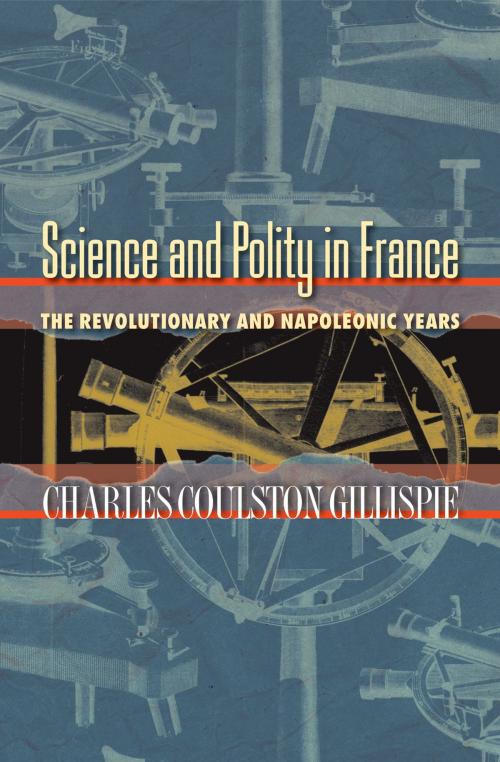Science and Polity in France
The Revolutionary and Napoleonic Years
Nonfiction, History, France, Science & Nature, Science, Other Sciences| Author: | Charles Coulston Gillispie | ISBN: | 9781400865314 |
| Publisher: | Princeton University Press | Publication: | October 20, 2014 |
| Imprint: | Princeton University Press | Language: | English |
| Author: | Charles Coulston Gillispie |
| ISBN: | 9781400865314 |
| Publisher: | Princeton University Press |
| Publication: | October 20, 2014 |
| Imprint: | Princeton University Press |
| Language: | English |
From the 1770s through the 1820s the French scientific community predominated in the world to a degree that no other scientific establishment did in any period prior to the Second World War. In his classic Science and Polity in France: The End of the Old Regime, Charles Gillispie analyzed the cultural, political, and technical factors that encouraged scientific productivity on the eve of the Revolution. In the present monumental and elegantly written sequel to that work, which Princeton is reissuing concurrently, he examines how the revolutionary and Napoleonic context contributed to modernization both of politics and science.
In politics, argues Gillispie, the central feature of this modernization was conversion of subjects of a monarchy into citizens of a republic in direct contact with a state enormously augmented in power. To the scientific community, attainment of professional status was what citizenship was to all Frenchmen in the republic proper, namely the license to self-governance and dignity within the respective contexts. Revolutionary circumstances set up a resonance between politics and science since practitioners of both were future oriented in their outlook and scornful of the past.
Among the creations of the First French Republic were institutions providing the earliest higher education in science. From them emerged rigorously trained people who constituted the founding generation in the disciplines of mathematical physics, positivistic biology, and clinical medicine. That scientists were able to achieve their ends was owing to the expertise they provided the revolutionary and imperial authorities in education, medicine, warfare, empire building, and industrial technology.
From the 1770s through the 1820s the French scientific community predominated in the world to a degree that no other scientific establishment did in any period prior to the Second World War. In his classic Science and Polity in France: The End of the Old Regime, Charles Gillispie analyzed the cultural, political, and technical factors that encouraged scientific productivity on the eve of the Revolution. In the present monumental and elegantly written sequel to that work, which Princeton is reissuing concurrently, he examines how the revolutionary and Napoleonic context contributed to modernization both of politics and science.
In politics, argues Gillispie, the central feature of this modernization was conversion of subjects of a monarchy into citizens of a republic in direct contact with a state enormously augmented in power. To the scientific community, attainment of professional status was what citizenship was to all Frenchmen in the republic proper, namely the license to self-governance and dignity within the respective contexts. Revolutionary circumstances set up a resonance between politics and science since practitioners of both were future oriented in their outlook and scornful of the past.
Among the creations of the First French Republic were institutions providing the earliest higher education in science. From them emerged rigorously trained people who constituted the founding generation in the disciplines of mathematical physics, positivistic biology, and clinical medicine. That scientists were able to achieve their ends was owing to the expertise they provided the revolutionary and imperial authorities in education, medicine, warfare, empire building, and industrial technology.















